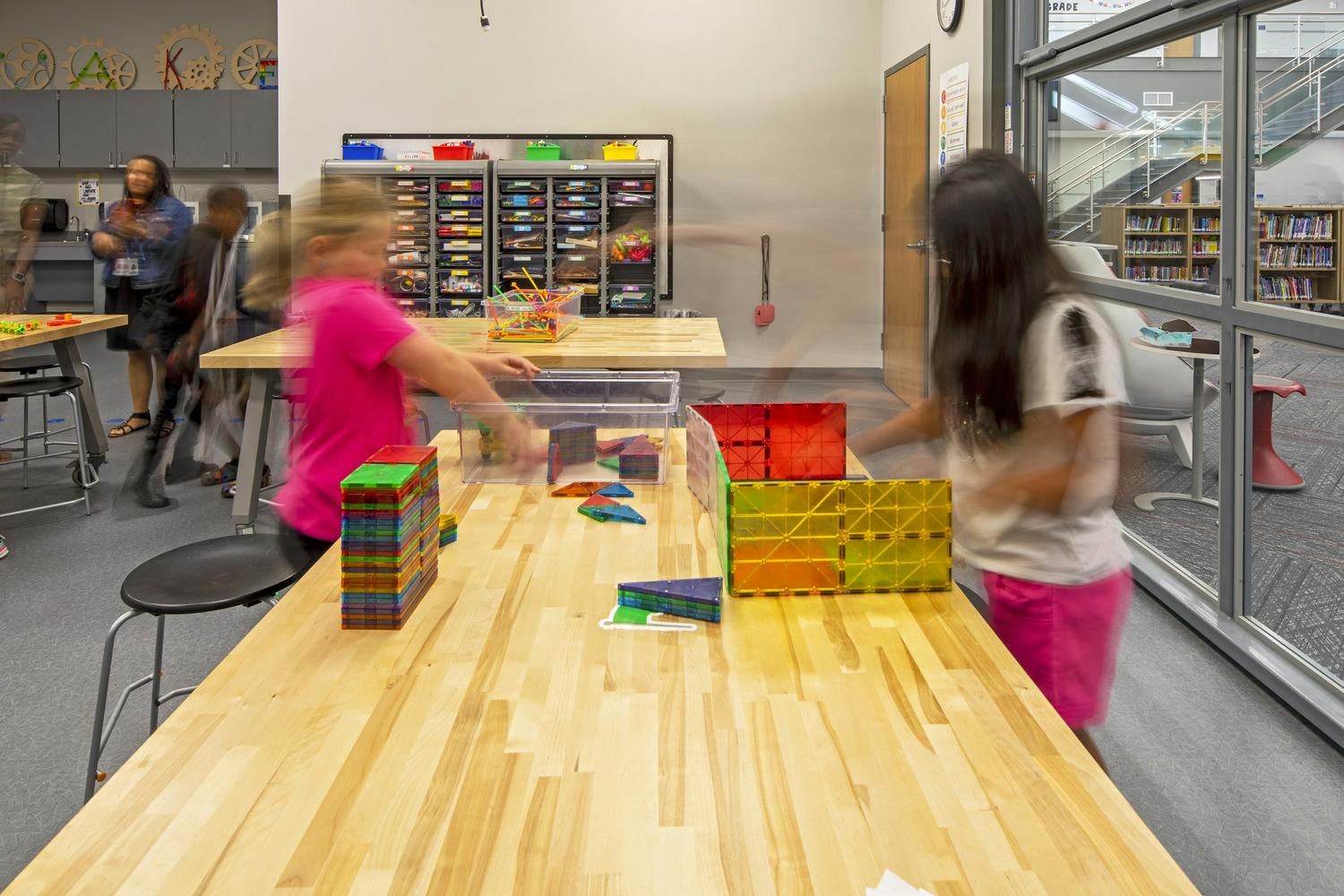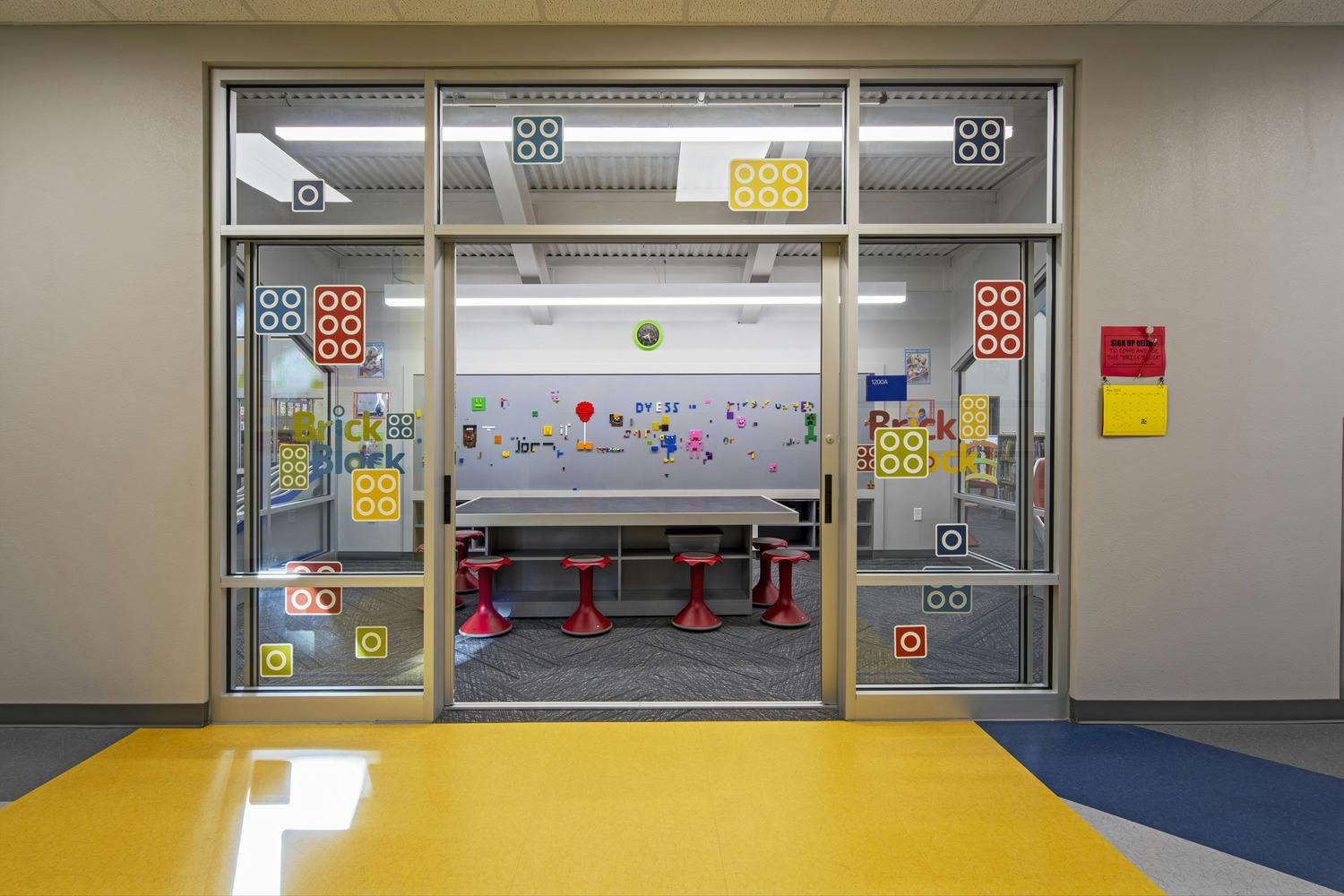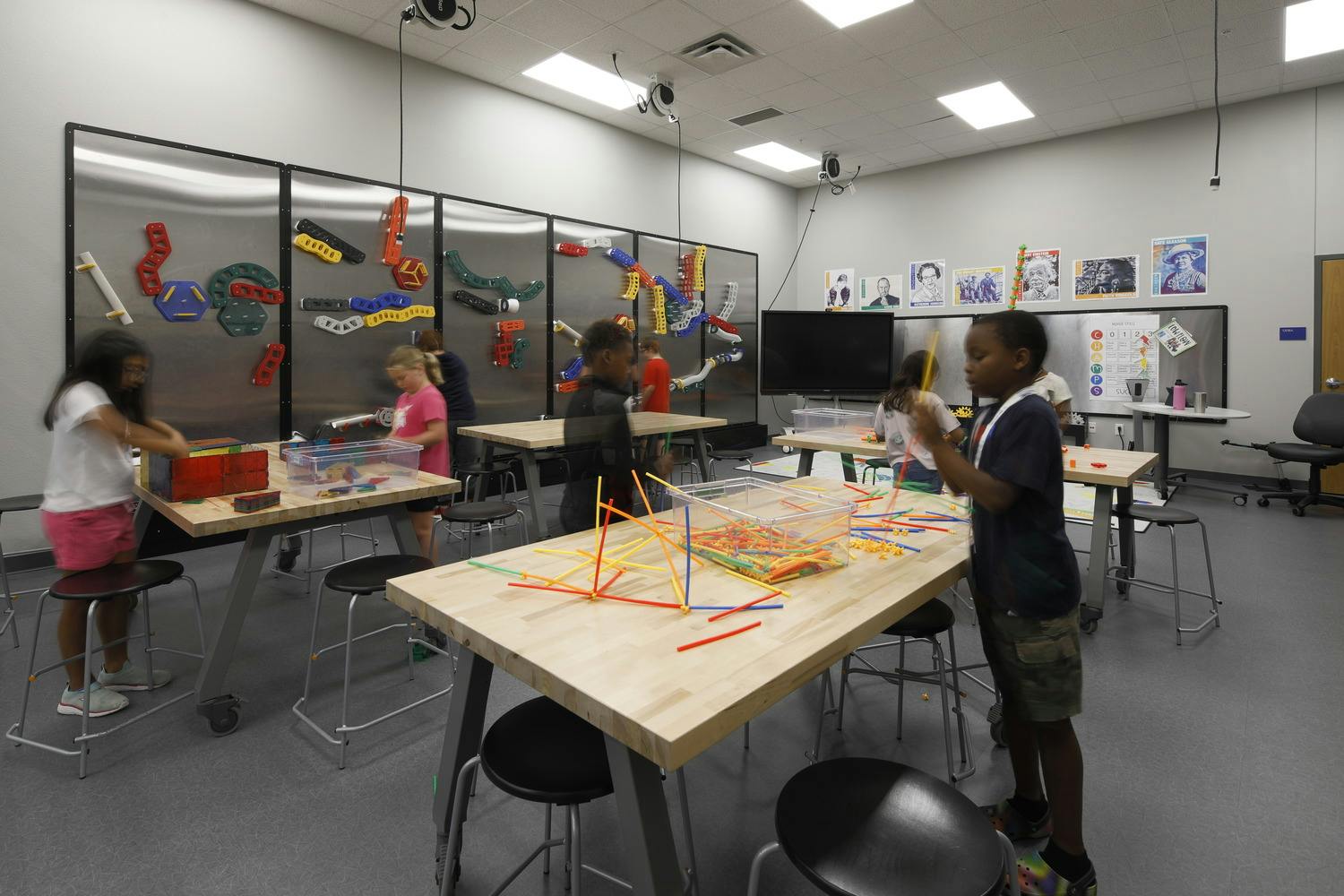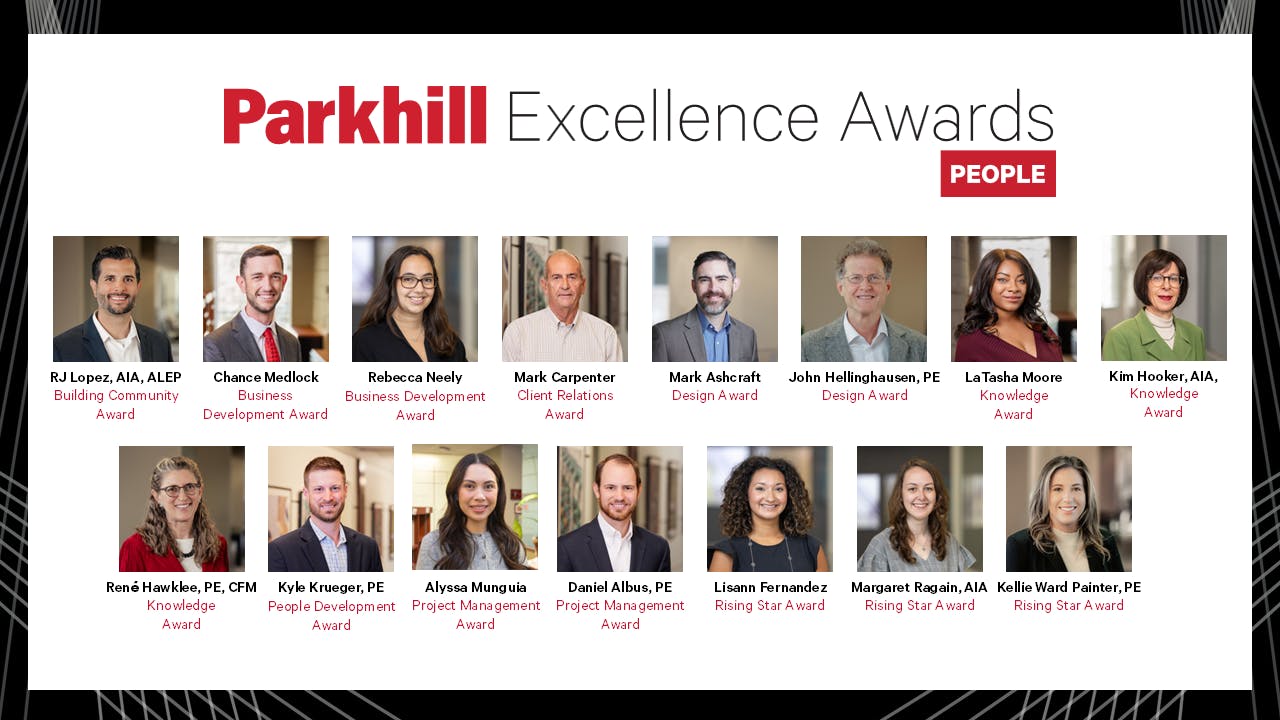The Future of Innovation at Dyess Elementary
Category: K12 Education
Written By: Ruppert Rangel, AIA
Date: November 3, 2022

 Ruppert Rangel, AIA, is the project manager for the new Abilene ISD Dyess Elementary School in Abilene, Texas. The innovative 21st Century Learning School has unique features including an aviation theme inspired by Dyess Air Force Base, six learning neighborhoods, and a Maker Space Lab encouraging students' interests in STEM.
Ruppert Rangel, AIA, is the project manager for the new Abilene ISD Dyess Elementary School in Abilene, Texas. The innovative 21st Century Learning School has unique features including an aviation theme inspired by Dyess Air Force Base, six learning neighborhoods, and a Maker Space Lab encouraging students' interests in STEM.
Most educators agree that introducing young children, especially girls, to science, technology, engineering, and math (STEM) subjects at an early age enhances students’ ability to learn critical and innovative thinking, teamwork, and creative problem-solving. Teaching STEM subjects gives students basic literacy, thinking, and learning skills that will help with many areas of their lives. The future of innovation starts with STEM!
At Dyess Elementary School in Abilene, Texas, the Maker Space Lab includes computerized 3-D printers and laser etching, activity bins, individual experiment activities, as well as a large, magnetized ball wall for students to create their own Rube Goldberg device, a device that moves a ball through a series of chain reactions. In the adjacent “Brick and Block Room” students build Lego cities, buildings, and other make-believe structures.
 “We have several STEM features that are unique to our campus," said Chad Drake, former Dyess Elementary School Principal. "We have a maker space and a little Lego room that kids can go in and explore, and really, our whole library STEM area is a totally different take on what we've been used to."
“We have several STEM features that are unique to our campus," said Chad Drake, former Dyess Elementary School Principal. "We have a maker space and a little Lego room that kids can go in and explore, and really, our whole library STEM area is a totally different take on what we've been used to."
So what happens when a student successfully codes a simple computer program for the first time, builds a bridge from plastic straws, or works together with their peers to construct a toothpick-and-marshmallow tower that stands up on its own? They are not just building skills for a potential future career. They are practicing problem-solving, trial and error, creativity, collaboration, and developing a mindset that enables them to face future challenges, and more importantly, they realize that STEM topics are FUN.





